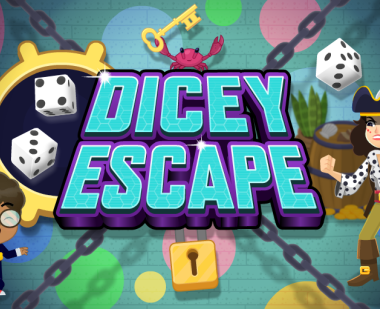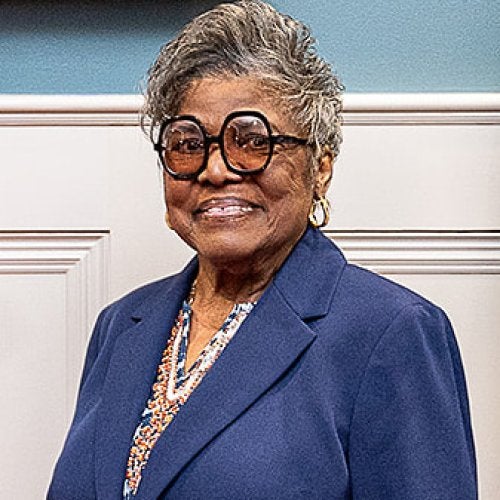
In a new PBS Kids online game released today, kids can suit up as special agents, scope out escape rooms and defeat a dastardly villain. They’ll also learn important math concepts along the way, thanks in part to a University of Maryland researcher.
Kelly S. Mix, professor and associate dean for research, innovation and partnerships in the College of Education, consulted on both game design and evaluation of the game, “Dicey Escape.”
“Researchers are always hoping that the work we do will find its way out into the public and be helpful,” said Mix, a former elementary school teacher who studies how young children develop an understanding of numbers as a concept along with mathematical reasoning. “This was one of those times that I could feel a direct connection. I have this knowledge base, and I was able to bring it into this situation where people are working to reach children.”
Intended for ages 5 to 7, “Dicey Escape” is linked to the Emmy Award-winning live-action comedy series “Odd Squad.” The popular show from Sinking Ship Entertainment and Fred Rogers Productions follows kid agents working at a secret agency who respond to bizarre events in their community and set things right using fantastical gadgets—and math, of course. The game’s release is timed to coincide with the Oct. 1 premiere of the show’s fourth season, “Odd Squad UK.”
Taking on the role of an Odd Squad agent, “Dicey Escape” players move through a series of escape rooms by searching for objects and solving increasingly complex math problems, all of which involve dice. They might start by matching the number of dots on a die with the correct numeral before moving on to addition or greater or less than problems; in the final level, they use algebraic thinking to fill in the blanks on both sides of an equation. Over the course of the adventure, they ultimately defeat a new “Odd Squad” villain, Dottie Doubloon.
Throughout the seven-month game development process, Mix consulted with game developer Sinking Ship Entertainment, PBS Kids and executive producer Fred Rogers Productions. She reviewed the team’s ideas and gave suggestions on math concepts to incorporate into the game, and also helped the developers think about how to structure, sequence and vary the math challenges in developmentally appropriate ways.
Mix also consulted with Fluent Research on the evaluation process, advising them on how to measure the game’s effectiveness and providing feedback on their research design.
“Dr. Mix was a critical part of the process,” said Abby Jenkins, senior director of content for PBS Kids. “This is a great example of how a scholar can provide actionable insights for media producers that are understandable, doable and digestible.”
Ellen Doherty, “Odd Squad” executive producer and chief creative officer at Fred Rogers Productions, added, “Working with advisers who really understand both math and kids in our target audience is integral to how we make games for ‘Odd Squad.’ The insights and practical guidance shared by [advisers like] Dr. Mix help our teams ensure that children who play ‘Dicey Escape’ have an experience that is both fun and full of learning.”
PBS Kids uses online games to reinforce concepts introduced through the storylines of its shows. According to Silvia Lovato, its senior director and head of learning and research, games give kids hands-on practice with the concepts they’ve seen on a show. By designing games that are engaging and that allow players to personalize their learning, PBS Kids hopes to encourage kids to play again and again. “We know that the more time they spend with the content, the more likely they are to learn,” said Lovato.



